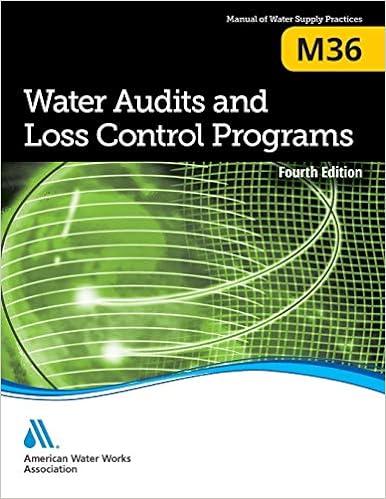Question
Case 1: Financial Statement Case Part 1 The purpose of this assignment is to review material covered in Acct:2100 and refresh your journal entry and
Case 1: Financial Statement Case Part 1
The purpose of this assignment is to review material covered in Acct:2100 and refresh your journal entry and financial statement skills as well as build your cash-flow skills. You may collaborate with colleagues; however, you are required to do your own work and your own case. Using the balance sheet at June 30, 2017 and information below:
Prepare the Income Statement, Statement of Owners Equity and the Balance Sheet for the fiscal year ending June 30, 2018. To support your work, prepare the appropriate journal entries and post to the related T-AccountsorAccounting Equationtemplate on the accompanying Excel Workbook
Your work is to be done using Microsoft Offices EXCEL or an EXCEL compatible program.
The attached Balance Sheet gives SeBass Inc.s financial position at the end of fiscal 2017. During fiscal 2018, your firm has the following transactions:
A. Your firm has total sales for the year of $1,610,100. Included in the total sales figure are $1,115,900 sales on credit. During the year, the firm received $1,080,000 of payments on account.
B. During the year, the firm determined that accounts totaling $3,100 were uncollectible. Moreover, a $650 receivable written off during the year was subsequently collected. The $650 is not included in A. above.
C. SeBass uses the allowance method to record bad debts. Specifically, the firm uses the percentage of receivables method to compute the allowance for doubtful accounts. For the year ended June 30, 2018, SeBass estimates the required allowance for doubtful accounts to be 5% of the gross accounts receivable balance at June 30, 2018.
D. SeBass, Inc. purchased $1,004,000 of additional inventory on account during the year. The purchases are charged to accounts payable. Total payments made on account for the year were $1,001,650. Inventory (prior to any LCM write-downs) at June 30, 2018 totaled $101,685.
E. Your firm has an outstanding 4% note payable (in long-term debt). Interest is paid annually on June 30th.
F. On July 1, 2017, the firm used $300,000 cash to purchase Abbee Company 6% bonds at face (par) value.The bonds pay interest semi-annually on January 1stand July1st. Your firm intends to hold the bonds as Available-for-Sale Securities.
G. On October 1, 2017, the firm put a new roof on the administrative building. The cash cost of the new roof was $35,000 and is expected to add 5 years to the life of the building from the date of installation. The firm also repainted the exterior of the building. The cash cost of the painting, which the firm does every three years, was $9,000.
H. Annual liability insurance premiums are payable on January 1stof each year. The premium amount paid in January 2018 was $34,800.
I. On April 1st, the firm purchased Sales Building 4 costing $390,000. SeBass paid thirty-five percent (35%) of the buildings cost in cash and issued a 4% 5-year note payable for the balance. The note requires annual interest payments. The expected life of the facility is 20 years, with no salvage value. Your firm uses the straight-line method of depreciation. The book values (as of June 30, 2017) of other PP&E currently on the books (also with no salvage value) are as follows:
|
| Historical | Accumulated | Remaining |
| Asset | Cost | Depreciation | Life |
| Land | $ 251,450 | $ - | - |
| Sales Building 1 | 468,000 | 257,400 | 9 |
| Sales Building 2 | 404,000 | 161,600 | 12 |
| Sales Building 3 | 445,000 | 111,250 | 15 |
| Administration Building | 156,000 | 46,800 | 14 |
| Total | $1,724,450 | $ 577,050 |
|
J. Administrative and Sales employee wages of $168,930 were earned and paid during fiscal 2017. In addition, during July 2017, the firm paid wages owed from the prior year. Unpaid wages for Fiscal 2018, which will be paid in July 2018, amount to $19,375.
K. On June 30, 2018, the firm sold Sales Building 2 for $225,000. The firm received payment in cash.
L. Also, on June 30th, the firm determined that a piece of equipment in Sales Building 1 was outdated due to significant technology changes. The book value of the equipment (after current year depreciation) was $26,450; the fair market value of the equipment was $12,000. The equipment meets the GAAP definition of impaired and must be written down.
M. On June 30, 2018, the ABBEE 6% bonds have a fair market value of $298,900.
N. During June 2018, SeBass paid $24,000 to acquire its own shares. These shares were correctly classified as Treasury Shares.
O. In the closing process, the firm determines that a substantial lower of cost or market (LCM) write-down of inventory is required. The estimated loss is $6,000.
P. During August 2017, your firms board of directors declared $28,000 of dividends. At September 30, 2017, the Dividend Payable account balance was $3,985.
Additional information:
The firm uses the periodic inventory system.
Ignore income taxes
CHECK FIGURES
Net Income = $254,956
Total Assets = $1,907,576




Step by Step Solution
There are 3 Steps involved in it
Step: 1

Get Instant Access to Expert-Tailored Solutions
See step-by-step solutions with expert insights and AI powered tools for academic success
Step: 2

Step: 3

Ace Your Homework with AI
Get the answers you need in no time with our AI-driven, step-by-step assistance
Get Started


